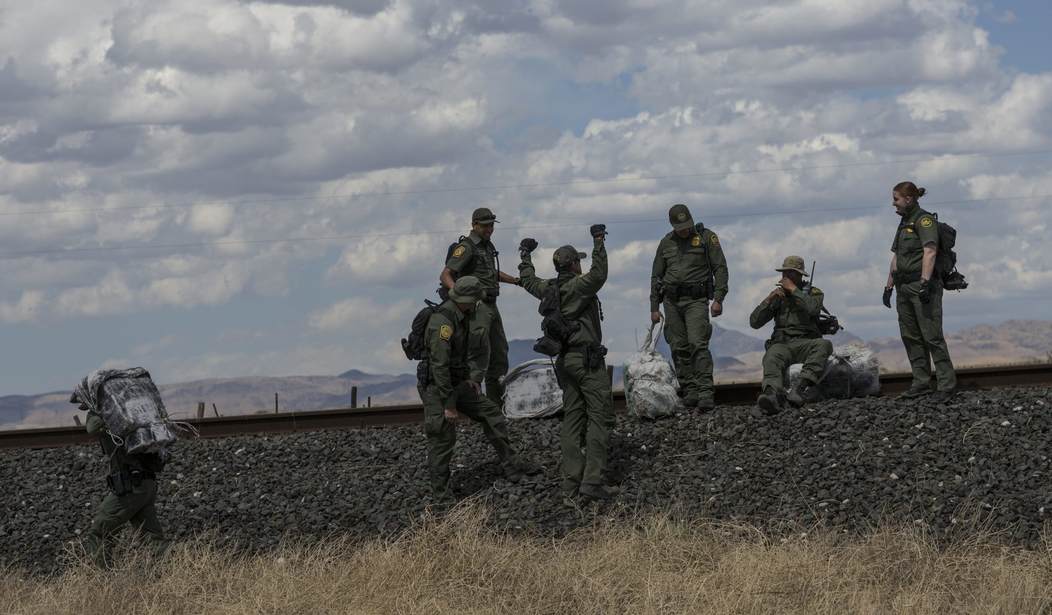WASHINGTON – Homeland Security Committee Chairman Rep. Michael McCaul (R-Texas) warned that hiring process for additional Customs and Border Patrol (CBP) personnel and replacements is too “slow and arduous” and the government is “falling” further behind with every passing month.
Acting CBP Commissioner Kevin McAleenan said the amount of fentanyl, a synthetic opioid, seized at the U.S. border went from 2.8 pounds in 2013 to 440 pounds in 2016. McAleenan added that the amount of fentanyl seized this year has already surpassed the 2016 data.
McCaul said CBP officers and Border Patrol agents are “the most important border security resource we have and our final layer of defense.” According to McCaul, CBP is “critically undermanned” and currently “well below its congressional mandated staffing levels” by more than 1,000 officers and 1,800 Border Patrol agents.
“Even with the recent push to hire more officers and agents, the process is slow and arduous. We are simply falling behind every single month and there’s no end in sight as we continue to lose agents and officers through attrition without the ability to quickly hire replacements,” McCaul said during this month’s U.S. Chamber of Commerce Annual Global Supply Chain Summit. “At the current hiring rate approximately 150 to 200 applicants go through the process in order to hire just one agent or officer. This means that CBP would need to have hundreds of thousands of people to apply just to meet their current needs.”
President Trump’s FY2018 budget request includes funds to add 500 additional CBP agents as part of his long-term plan to hire 5,000 additional officers.
McCaul said filling staffing needs is a challenge for CBP due to several factors such as polygraph testing rules.
“We are losing far too many strong applicants because the current process is flawed and as a result we are experiencing a substantial staffing bottleneck,” he said. “Several weeks ago my committee passed a bill to expedite the hiring process by making smarter decisions regarding the polygraph examination policy.”
McCaul said the new legislation would help “alleviate the immediate shortage” of CBP officers and agents.
“This bill provides flexibility to allow the commissioner of CBP to waive the polygraph exam for current federal, state and local law enforcement officers who have already passed a polygraph examination or who have already passed a stringent background investigation,” he said.
McAleenan said the Border Patrol is addressing new threats like synthetic opioids and other synthetic drugs that can “invade” the supply chain in “such small amounts with such great value” to the criminal networks and substantial risk to local communities.
“We see synthetic opioids and other synthetic drugs like fentanyl. In 2013, it was almost unheard of. We seized 2.8 pounds, just over a kilo total of fentanyl at the border. In 2016, it’s 440 pounds. We’ve already exceeded that in 2017,” McAleenan said in his presentation titled International Trade: Opportunities at the Border.
“Some of these formulations are 100 times more potent than morphine or heroin… a very small amount of fentanyl can have a tremendous impact in terms of the ongoing opioid epidemic, the risk that it poses to our communities and unfortunately the profit that it means for criminal networks – that’s a challenge we’ve got to figure out together,” he added.
McAleenan also said the U.S. trade relationship with Mexico remains strong.
“Despite obviously a diplomatic and political environment that’s different and challenging with Mexico right now, that has not changed our operational partnerships in any way,” he said.
McAleenan told the audience that ports of entry enhancements should be part of an infrastructure package passed by Congress. McCaul said the United States must ensure the safety and security of its ports of entry.
“Many are in dire need of expansion and modernization. For years, funding for ports of entry has been inadequate, so we must be creative in addressing this challenge. As ya’ll know better than anyone else, the private sector is often a willing partner to work with CBP on a mutually beneficially basis to solve many of these problems, and that is why I fully support public private partnerships and other innovative ways to find infrastructure improvements.”
During his keynote address, McCaul also warned that foreign fighters are “intent” on returning home to the West and causing “destruction.”
“As you know, four of the 9/11 hijackers came to this country legally and overstayed their visas or were out of status. In fact, the 9/11 hijackers crossed the border a combined 68 times and that means we had 68 opportunities but we failed to connect the dots, and thousands of innocent Americans paid a heavy price on that day. As the 9/11 Commission has suggested, travel documents are as important as weapons. With the so-called ISIS caliphate in the Middle East deteriorating, foreign fighters are returning home intent on causing destruction in the Western world,” McCaul said in his speech, which took place prior to the terrorist attack in Manchester.
“Just last month, [DHS] Secretary Kelly said as many as 10,000 European citizens may have joined the caliphate in Syria and Iraq and are intent on causing destruction by any means possible – and make no mistake, they are trying to get to our shores,” he added. “The possibility that foreign fighters could exploit our visa process and come to America undetected is one of the principle reasons I established a task force on combating terrorist and foreign fighter travel last Congress.”









Join the conversation as a VIP Member